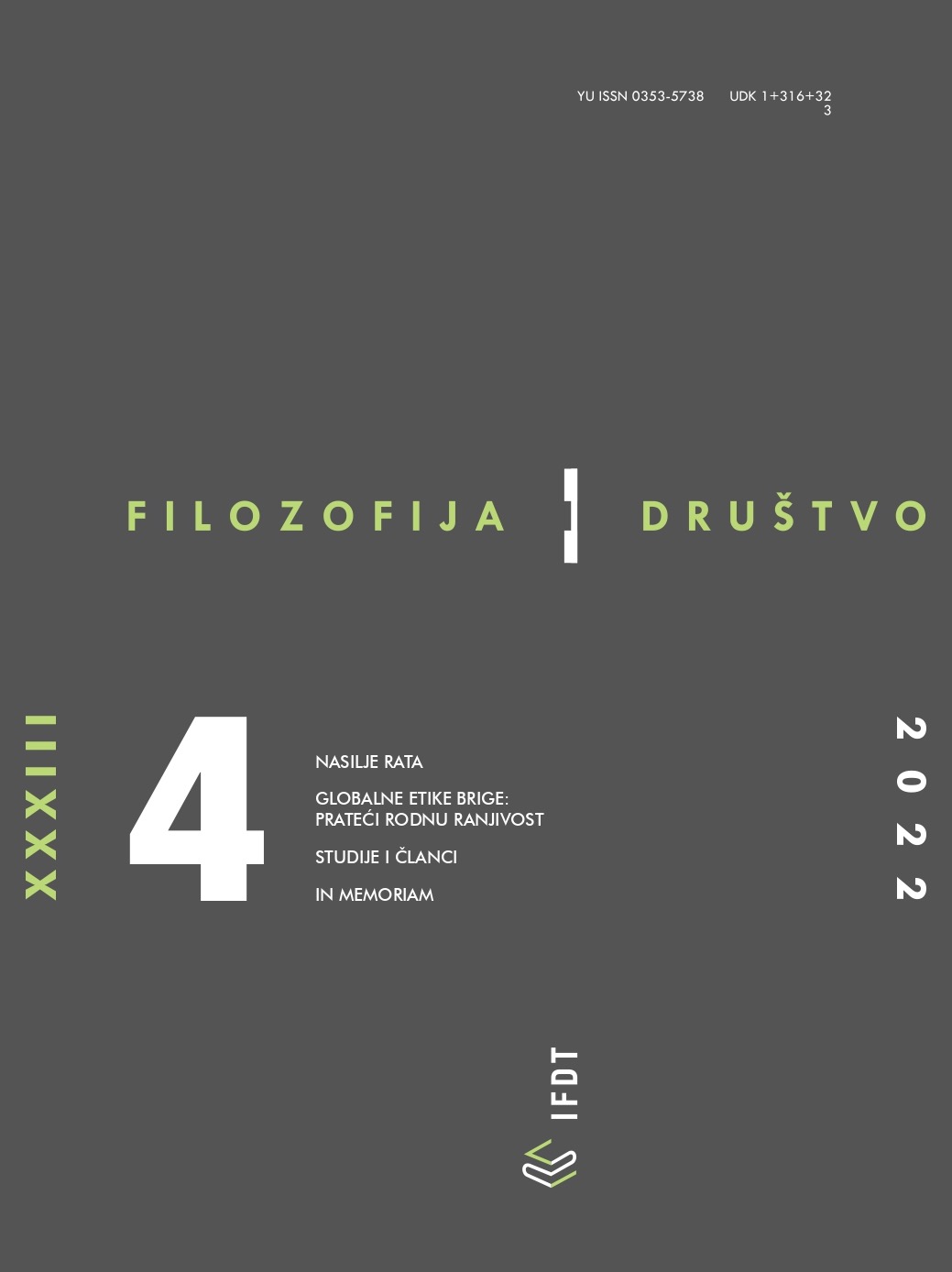POLITICAL AND WORLD-HISTORICAL COURAGE IN HEGEL’S PHILOSOPHY
POLITICAL AND WORLD-HISTORICAL COURAGE IN HEGEL’S PHILOSOPHY
Author(s): Đorđe HristovSubject(s): Philosophy
Published by: Institut za filozofiju i društvenu teoriju
Keywords: courage war; contract theory; monarch; world-historical individual; Hegel; Hobbes
Summary/Abstract: The aim of this article is to develop a distinction between two types of courage in Hegel’s philosophy: political and world-historical, in order to show the limitations of the former. The concept of political courage, or Tapferkeit, features in Hegel’s political philosophy, and signifies the wartime form of mutual trust required of the modern citizen for defense of an established constitution. World-historical courage, on the other hand, relates to the personal virtue of the ‘great individual’, which acts as a force of destruction against decaying constitutions. The article shows that political courage for Hegel serves as an alternative to the idea of the contract as the foundation of state unity. However, when placed in comparison with world-historical courage, political courage does not fully correspond to its concept as defined by Hegel. I begin with Hegel’s critique of Hobbes, his rejection of the social contract theory, and his introduction of the concept of Tapferkeit as an alternative principle of political unity. In the next step I show that world-historical courage differs but also shares many similarities with political courage, which taken together reveal the limitations of the latter. In the end, I argue that only in the instance of Hegel’s conception of total war do political and worldhistorical courage coincide.
Journal: Filozofija i društvo
- Issue Year: 33/2022
- Issue No: 4
- Page Range: 982-1003
- Page Count: 22
- Language: English

